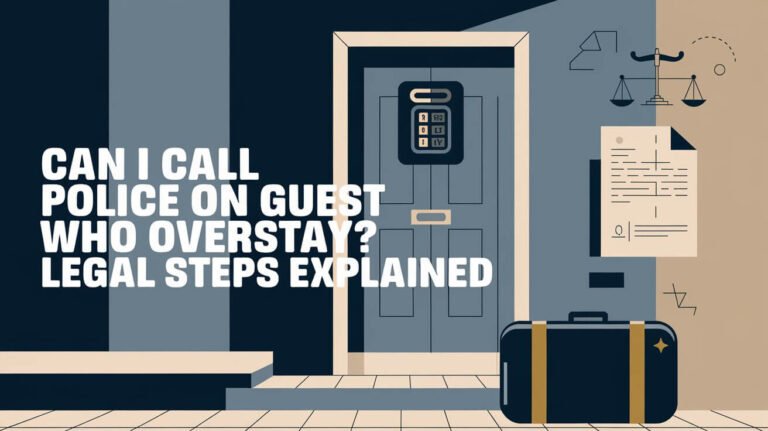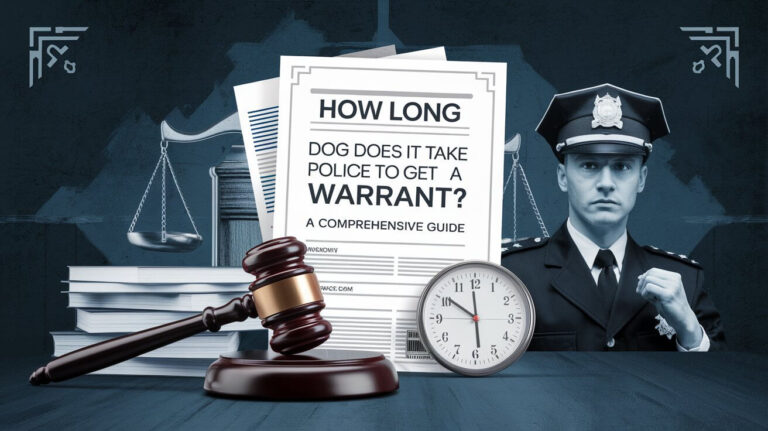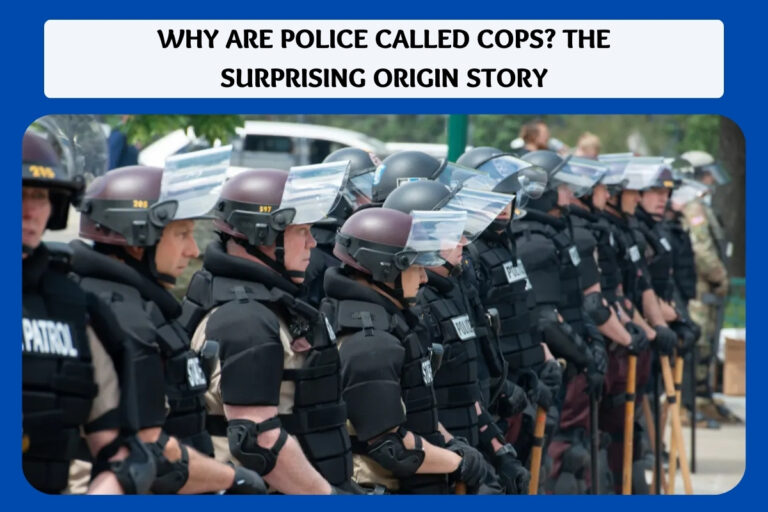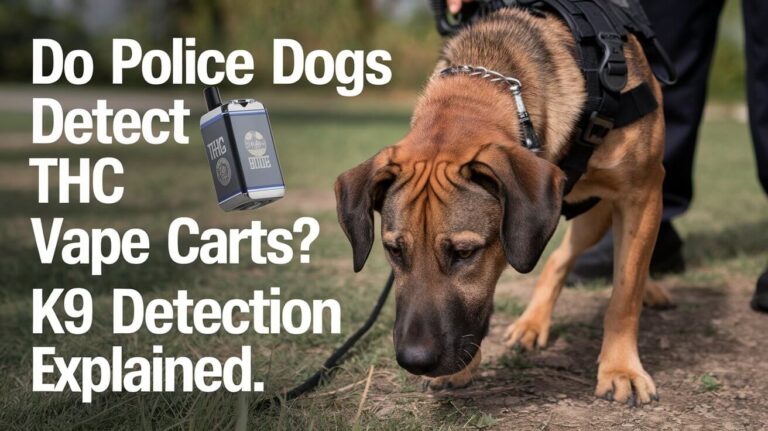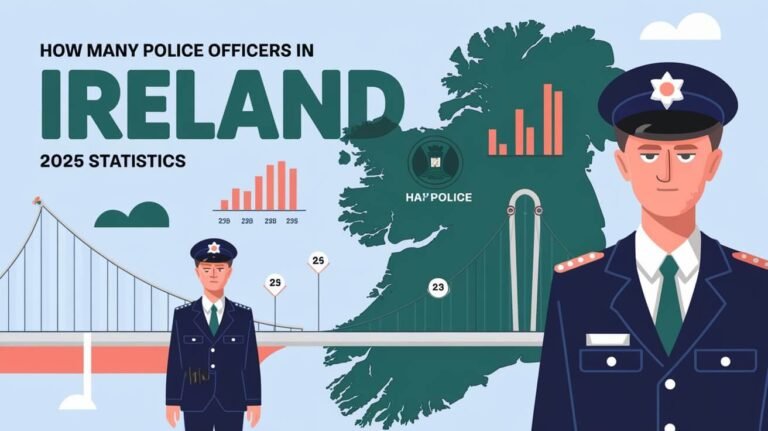What Do You Need to Be a Police Officer? Essential Guide
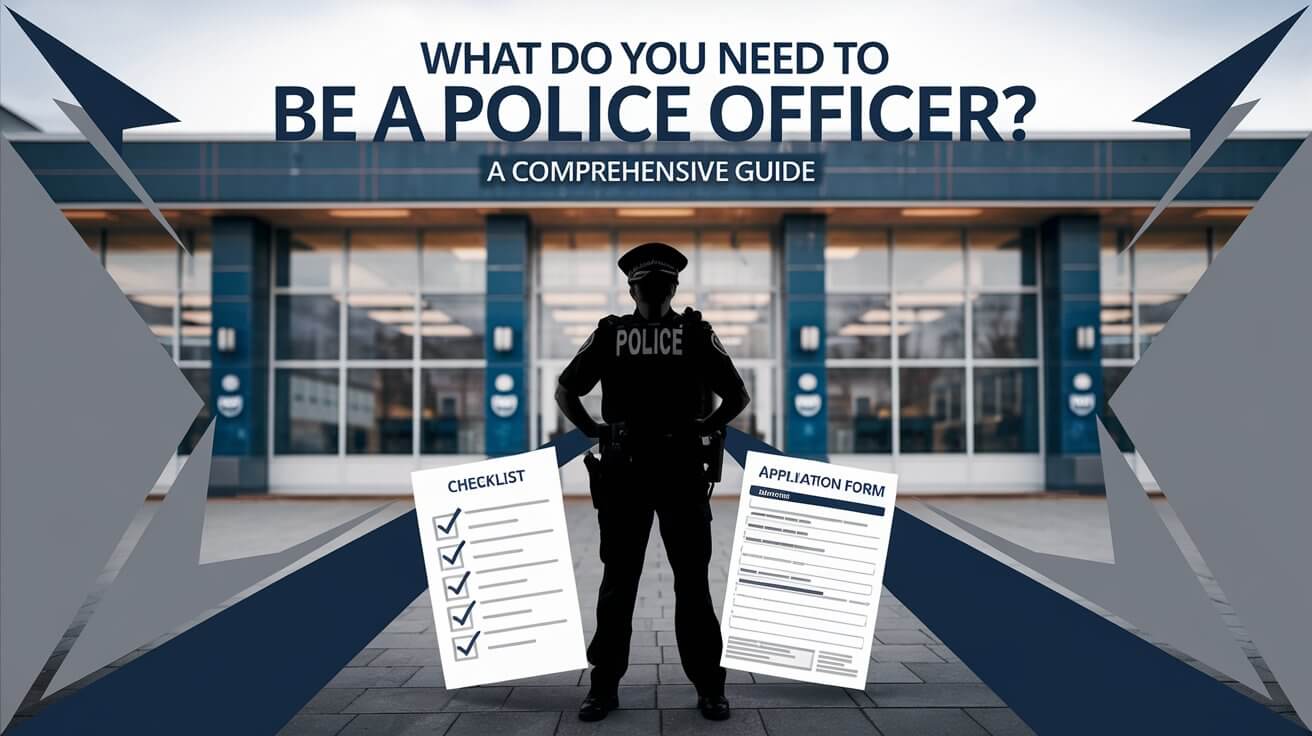
Becoming a police officer requires meeting specific requirements and going through a rigorous selection process. To be a police officer, you need to meet age and citizenship criteria, have a clean criminal record, pass physical and psychological evaluations, and complete police academy training. This guide covers everything you need to know about starting a career in law enforcement.
Essential Requirements for Becoming a Police Officer
Age Requirements
Most police departments set a minimum age for new officers. Typically, you must be at least 18 to 21 years old to apply. Some agencies also have upper age limits, often around 35 to 40 years old. Check with your local department for specific age rules.
Citizenship and Residency
To become a police officer, you must be a U.S. citizen or a permanent resident alien. Many departments also require you to live in the area you’ll serve. This local connection helps officers understand their community better.
Educational Qualifications
The basic education needed to be a police officer is a high school diploma or GED. However, many departments now prefer candidates with some college education. An associate’s or bachelor’s degree in criminal justice, law enforcement, or a related field can give you an edge.
Physical Fitness Standards
Police work is physically demanding. You’ll need to pass a fitness test that usually includes:
- Running a set distance in a specific time
- Doing a certain number of push-ups and sit-ups
- Demonstrating strength and agility
Start training early to meet these standards. Regular exercise and a healthy diet will help you prepare.
Clean Criminal Record
A clean record is crucial for anyone wanting to be a police officer. Most departments won’t accept candidates with felony convictions. Even misdemeanors can hurt your chances. Be honest about your past during the application process.
Valid Driver’s License
Police officers spend a lot of time driving, so a valid license is a must. Some departments also check your driving record, looking for a history of safe driving.
The Application Process for Aspiring Police Officers
Initial Application and Screening
The journey to become a police officer starts with filling out an application. Be thorough and honest. Many departments do initial screenings to check if you meet basic requirements before moving forward.
Written Examination
Next, you’ll likely face a written test. This exam covers:
- Reading comprehension
- Writing skills
- Basic math
- Problem-solving abilities
- Knowledge of laws and police procedures
Study guides can help you prepare for this important step.
Physical Ability Test
The physical test checks if you’re fit enough for police work. It often includes:
- Sprinting
- Obstacle courses
- Strength exercises
Train regularly to build the stamina and strength you’ll need.
Background Investigation
Expect a deep dive into your past. Investigators will check:
- Criminal records
- Credit history
- Employment background
- Personal references
Be ready to explain any red flags they might find.
Polygraph Test
Many departments use lie detector tests to verify the information you’ve provided. Answer all questions truthfully to avoid disqualification.
Psychological Evaluation
Police work can be stressful. A psychological exam helps ensure you’re mentally fit for the job. It usually involves:
- Personality tests
- One-on-one interviews with a psychologist
Be honest and open during this process.
Medical Examination
A thorough health check is part of becoming a police officer. Doctors will check your:
- Vision and hearing
- Cardiovascular health
- Overall physical condition
Stay healthy and address any medical issues before applying.
Oral Board Interview
The final hurdle is often an interview with a panel of officers. They’ll ask about your:
- Motivation to become a police officer
- Problem-solving skills
- Ethical decision-making abilities
Practice common interview questions to feel more confident.
Police Academy Training: What to Expect
Duration and Intensity of Training
Police academy training usually lasts 13 to 19 weeks. It’s intense, with long days filled with physical and mental challenges. Be prepared for a demanding schedule and high expectations.
Classroom Instruction Topics
You’ll spend time in the classroom learning about:
- Criminal law
- Constitutional law
- Local ordinances
- Traffic regulations
- Emergency response procedures
Take good notes and ask questions to fully understand these crucial topics.
Physical Training and Self-Defense
Expect daily physical training to build strength and endurance. You’ll also learn self-defense techniques and how to safely restrain suspects.
Firearms Training
Proper firearm use is a critical skill for police officers. You’ll learn:
- Gun safety
- Marksmanship
- When to use deadly force
Practice regularly to become proficient and comfortable with your weapon.
Driving Skills
Police officers need advanced driving skills. You’ll learn:
- High-speed pursuit techniques
- Defensive driving
- How to safely navigate in emergencies
Pay close attention to these lessons to keep yourself and others safe on the road.
Practical Scenarios and Role-Playing
Hands-on training helps prepare you for real-world situations. You’ll practice:
- Responding to domestic disputes
- De-escalating tense situations
- Making arrests
Take these exercises seriously to build confidence in your abilities.
Essential Skills and Qualities for Police Officers
Communication Skills
Good police officers are excellent communicators. You’ll need to:
- Speak clearly and confidently
- Listen actively
- Write detailed reports
Practice these skills daily to improve.
Problem-Solving Abilities
Police work often involves complex situations. Develop your ability to:
- Think critically
- Make quick decisions
- Find creative solutions
Puzzle games and brain teasers can help sharpen these skills.
Emotional Intelligence
Dealing with the public requires emotional intelligence. Work on:
- Empathy
- Self-awareness
- Stress management
These skills will help you handle difficult situations calmly and effectively.
Physical Stamina and Agility
Police work is physically demanding. Stay in shape by:
- Exercising regularly
- Eating a healthy diet
- Getting enough sleep
Your body is one of your most important tools on the job.
Attention to Detail
Small details can make a big difference in police work. Practice:
- Observing your surroundings carefully
- Taking thorough notes
- Double-checking your work
These habits will serve you well throughout your career.
Teamwork and Leadership
Police officers work closely with others. Develop your ability to:
- Collaborate effectively
- Take initiative when needed
- Support your fellow officers
Team sports or group activities can help build these skills.
Career Paths and Specializations in Law Enforcement
Patrol Officer
Most new officers start on patrol. You’ll:
- Respond to emergency calls
- Patrol assigned areas
- Enforce traffic laws
This role gives you a solid foundation in police work.
Detective
With experience, you might become a detective. This role involves:
- Investigating crimes
- Interviewing witnesses and suspects
- Gathering evidence
Strong analytical skills are crucial for this specialization.
SWAT Team Member
SWAT teams handle high-risk situations. This role requires:
- Advanced tactical training
- Excellent physical fitness
- Ability to work under extreme pressure
Only the most skilled officers make it onto SWAT teams.
K-9 Unit Officer
Working with police dogs is a unique specialization. You’ll need:
- A love for animals
- Patience for training
- Ability to care for your canine partner
This role can be highly rewarding for animal lovers.
Community Relations Officer
Building trust with the community is crucial. In this role, you’ll:
- Attend community events
- Give safety presentations
- Work with local organizations
Strong people skills are a must for this specialization.
Traffic Enforcement
Some officers focus on traffic safety. You’ll:
- Enforce traffic laws
- Investigate accidents
- Educate the public on road safety
This role requires patience and attention to detail.
Continuing Education and Professional Development for Police Officers
In-Service Training
Police work is always evolving. Regular training keeps your skills sharp. Expect to learn about:
- New laws and procedures
- Advanced investigation techniques
- Updated safety protocols
Stay curious and engaged during these sessions to grow as an officer.
Advanced Certifications
Specialized certifications can boost your career. Options include:
- Forensic specialist
- Crisis negotiator
- Cybercrime investigator
Choose certifications that align with your interests and career goals.
Degree Programs for Law Enforcement
Many officers pursue higher education while working. Consider degrees in:
- Criminal justice
- Public administration
- Psychology
These programs can prepare you for leadership roles in law enforcement.
The Challenges and Rewards of a Police Officer Career
Work Schedule and Shift Work
Police work often involves irregular hours. Be prepared for:
- Night shifts
- Weekend work
- Holiday duties
Flexibility and good time management skills are crucial.
Emotional and Physical Demands
The job can be tough on your mind and body. Take care of yourself by:
- Seeking support when needed
- Maintaining a healthy work-life balance
- Staying physically fit
Remember, your well-being impacts your job performance.
Community Impact and Public Service
As a police officer, you’ll make a real difference. You’ll have the chance to:
- Help people in need
- Solve problems in your community
- Be a positive role model
Focus on these rewarding aspects during tough times.
Career Advancement Opportunities
Hard work can lead to promotions. You might become a:
- Sergeant
- Lieutenant
- Captain
- Chief of Police
Set goals and work towards them throughout your career.
Job Security and Benefits
Police work offers stability and good benefits. Most departments provide:
- Steady employment
- Health insurance
- Retirement plans
These perks can provide peace of mind for you and your family.
Technology in Modern Policing: What Aspiring Officers Should Know
Body Cameras and Video Evidence
Body cameras are now common in police work. They:
- Provide evidence for investigations
- Increase transparency
- Protect both officers and the public
Learn to use this technology effectively and ethically.
Crime Mapping and Data Analysis
Modern policing uses data to fight crime. You’ll need to:
- Understand basic statistics
- Use mapping software
- Interpret crime trends
These skills help departments allocate resources efficiently.
Social Media in Law Enforcement
Social media plays a big role in modern policing. Officers use it to:
- Share public safety information
- Gather intelligence
- Connect with the community
Stay up-to-date on social media trends and best practices.
Cybercrime Investigation Tools
As online crime increases, so does the need for tech-savvy officers. Learn about:
- Digital forensics
- Online fraud detection
- Cyber security basics
These skills are increasingly valuable in law enforcement.
Diversity and Inclusion in Law Enforcement
Importance of Diverse Police Forces
Diverse departments better serve diverse communities. They:
- Improve community relations
- Bring different perspectives to the job
- Enhance problem-solving abilities
Embrace diversity as a strength in law enforcement.
Recruitment Initiatives for Underrepresented Groups
Many departments are working to increase diversity. Look for:
- Mentorship programs
- Targeted recruitment events
- Scholarships for minority candidates
These initiatives can provide valuable support and opportunities.
Cultural Competency Training
Understanding different cultures is crucial for effective policing. Expect training on:
- Cultural differences
- Implicit bias
- Effective cross-cultural communication
Take this training seriously to better serve your community.
Ethical Considerations for Aspiring Police Officers
Use of Force Policies
Understanding when and how to use force is critical. You’ll learn about:
- De-escalation techniques
- Proportional response
- Legal implications of use of force
Always strive to use the minimum force necessary.
Accountability and Transparency
Modern policing emphasizes accountability. Be prepared to:
- Document your actions thoroughly
- Cooperate with investigations
- Be transparent about your work
These practices build trust with the public and your department.
Community Trust and Legitimacy
Building community trust is a key part of policing. Focus on:
- Treating everyone with respect
- Being fair and impartial
- Engaging positively with community members
Your actions can shape public perception of law enforcement.
Becoming a police officer is a challenging but rewarding journey. It requires dedication, integrity, and a genuine desire to serve your community. If you’re willing to put in the work and meet the requirements, a career in law enforcement can offer you the chance to make a real difference in people’s lives. Stay focused on your goals, prepare thoroughly, and approach the process with determination and honesty. The path to becoming a police officer may be demanding, but for those committed to public service, it’s a fulfilling career choice.

